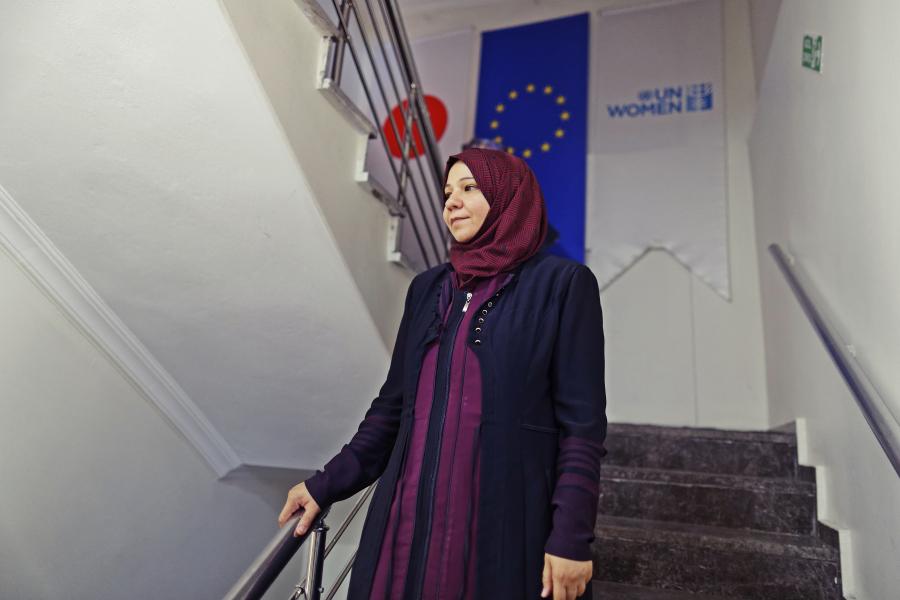World Refugee Day on the 10th Year of the War
18 June 2020
- "Syrian women and girls, who already lack access to basic rights, services and opportunities, face further inequalities exacerbated by the COVID-19 pandemic. Incorporating the needs of refugee and migrant women into crisis management plans plays a crucial role in achieving gender equality and leaving no one behind – which are two of the fundamental principles of the Sustainable Development Goals" says UN Women Turkey Country Director Asya Varbanova on On World Refugee Day.

Since its outburst in 2011 the war in Syria has displaced millions of people. On the tenth year of the war Turkey is hosting over 3,5 million Syrians under temporary protection. Women and girls make up almost half of the Syrian population in Turkey while 60% of the population is under 25 years old. Like in all other crises and conflicts, women and girls are affected differently from the Syrian crisis than men and boys. 70% of the female Syrian population in Turkey says they have little to no knowledge of the Turkish language. Traditionally expected responsibilities such as care and housework, as well as negative practices as child, early and forced marriages continue to limit women and girls’ access to rights and services. Meanwhile, COVID-19 pandemic exacerbates already existing inequalities. As an increase in domestic violence is reported all around the globe under the COVID-19 pandemic, domestic violence emerges as a “shadow pandemic” and profoundly affects Syrian women and girls.
Gender equality for all
UN Women aims to increase Turkish and Syrian women’s access to rights and services while supporting their social and economic empowerment. Through women only centers in Gaziantep and İzmir, UN Women reaches over 10 thousand women, providing psychosocial support, counselling and referral services under its refugee response programme. Financed by the European Union and the Government of Japan the programme is implemented in collaboration with local authorities and civil society organizations. As women partake in Turkish language courses, language clubs, vocational trainings and income generating opportunities, their access to labour market also increases. Thanks to the programme the solidarity among Turkish and Syrian women grows stronger.
On World Refugee Day, UN Women Turkey Country Director Asya Varbanova highlights the impacts of COVID-19 pandemic, “As COVID-19 pandemic restricts all our lives in certain ways, it disproportionately affects refugees and migrants. Syrian women and girls, who already lack access to basic rights, services and opportunities, face further inequalities exacerbated by the COVID-19 pandemic. Incorporating the needs of refugee and migrant women into crisis management plans plays a crucial role in achieving gender equality and leaving no one behind – which are two of the fundamental principles of the Sustainable Development Goals. As UN Women, our goal is to empower women and achieve gender equality by 2030.”
“If only Living would be a Feast”
2020 marks the 10th year of the crisis in Syria. On the occasion of World Refugee Day on the 20th of June, Turkish and Syrian women sing “If only life would be a feast” – a cherished Turkish song celebrating life and unity in diversity. As Turkish and Syrian women sing the song together, they call for an equal world and future. The video was prepared with the support of UN Women project partners Association for Solidarity with Asylum Seekers and Migrants (ASAM), Habitat Association and Refugee Support Center (MUDEM):
“Women are disproportionately affected by wars and crises. A lot of women do not have anyone to share their problems, the hardships they experience or their worries. That is why it is extremely important for women to support each other, especially during difficult times as the COVID-19 pandemic. As the lyrics goes, there is nothing we can’t overcome if we stand in solidarity. Whether life is a celebration depends on all of us. We must unite for an equal future.” Shehed Msatat, Syrian woman.

